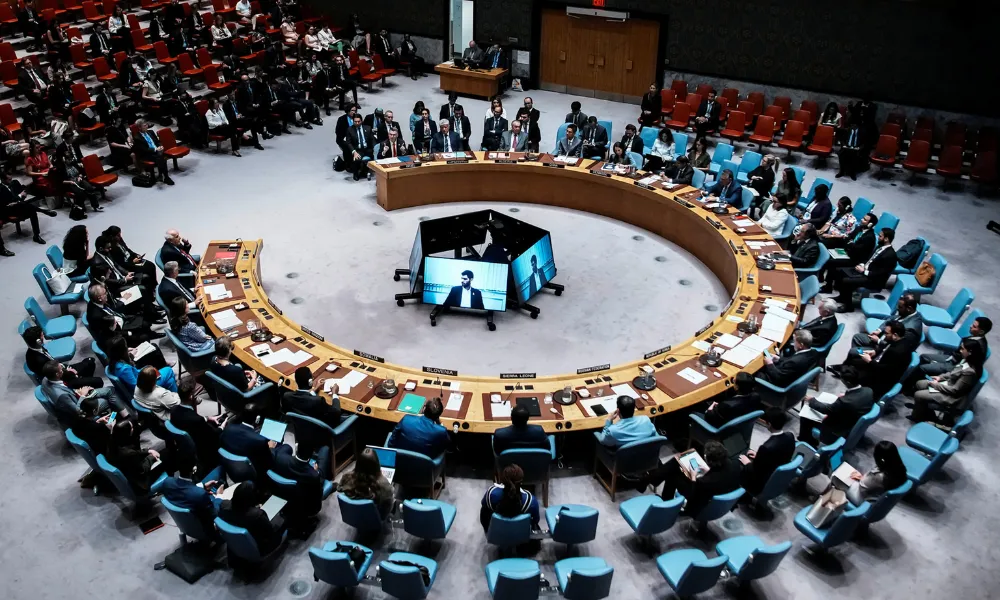Cyprus used a high-level UN Security Council debate on conflict-related food insecurity to argue that famine in war is a choice, not a fate. Special Envoy for Multilateralism Andreas Kakouris said conflict hunger and food insecurity “are not a natural disaster, but the direct outcome of political failure, instability and the erosion of respect for international humanitarian law.” He reminded members that Resolution 2417 “reaffirmed that starvation must never be used as a method of warfare.”
Kakouris urged the Council to “guarantee safe, sustained, and unhindered humanitarian access” and to “protect humanitarian and medical personnel,” stressing accountability for those who obstruct aid or weaponise hunger. “Preventing hunger in conflict is not solely a humanitarian challenge, it is a political responsibility,” he said, calling on members to reaffirm that “famine is preventable.”
The session unfolded amid mounting warnings from UN agencies and the International Committee of the Red Cross about rising conflict-driven hunger, including in Sudan and Gaza, and renewed appeals to enforce the starvation prohibitions embedded in international humanitarian law and UNSC Resolution 2417. The EU and several Council members similarly condemned starvation as a weapon of war and pressed for access corridors and protection of aid workers.
The legal framework
Adopted in 2018, Resolution 2417 explicitly condemns the starvation of civilians as a method of warfare and protects objects indispensable to civilian survival, from food stocks to water systems. It also urges early warning, reporting and accountability when conflict and hunger intersect.
Security Council follow-up typically hinges on concrete access arrangements, monitoring and reporting under the 2417 framework. Humanitarian experts argue that consistent naming, investigations and targeted measures against those obstructing aid are needed to deter violations.
Source: CNA
